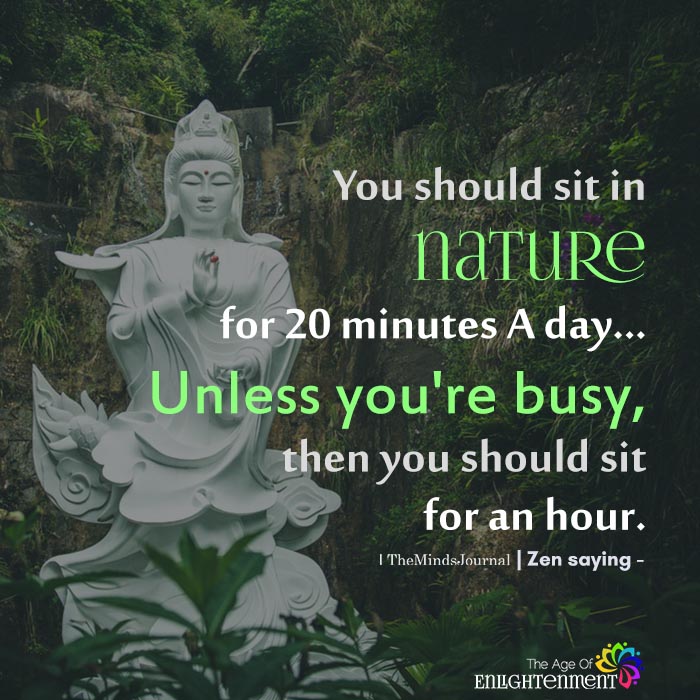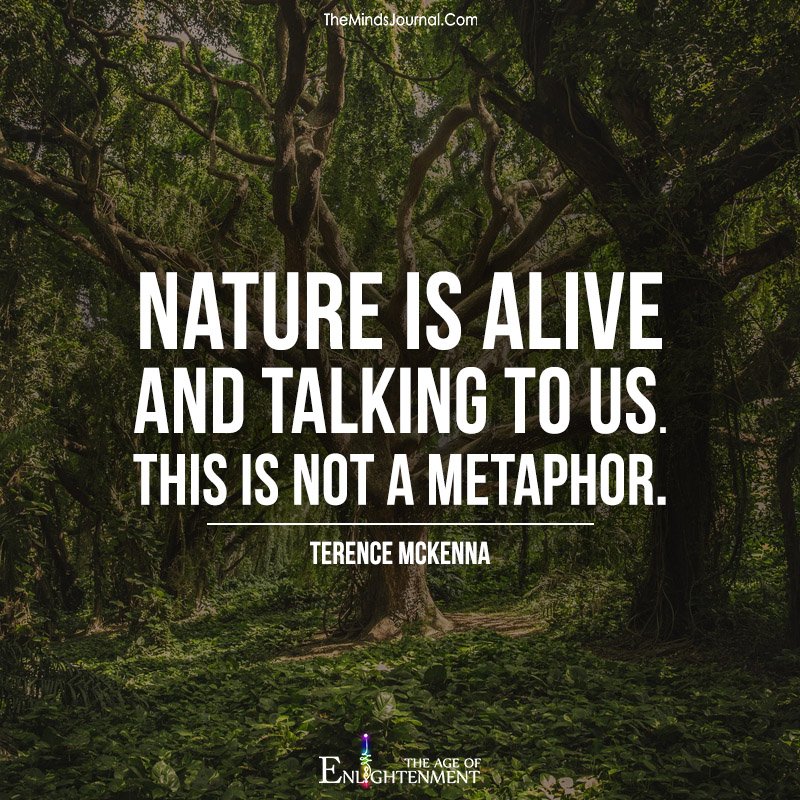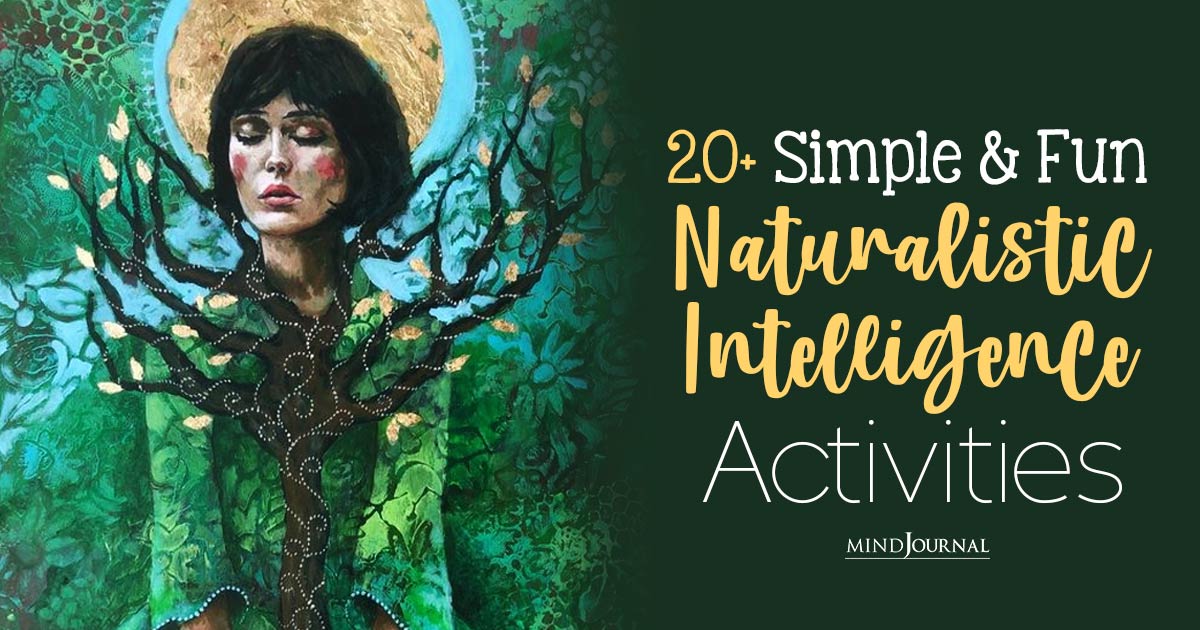Have you ever been in awe of someone who seems to have an innate ability to connect with nature? This is known as naturalistic intelligence, a type of intelligence that is often overlooked and undervalued in our society. Let’s explore naturalistic intelligence definition and naturalistic intelligence activities.
What is naturalistic intelligence?
Naturalistic intelligence definition: Naturalistic intelligence refers to our ability to recognize and classify plants, animals and other objects in nature.
It allows us to make connections with the natural world and derive meaning from our surroundings. Children naturally exhibit naturalistic intelligence characteristics through their curiosity about animals and desire to collect things in nature. But naturalistic intelligence is just as relevant for adults to cultivate.
Naturalistic intelligence is a term coined by psychologist Howard Gardner as part of his theory of multiple intelligences. According to Gardner, naturalist intelligence is the ability to recognize and classify objects, living things, and natural phenomena in one’s environment.
Related: The 9 Different Types of Intelligence: Which Smart are you?
People with high naturalistic intelligence characteristics have an affinity for nature and are often able to understand the intricate relationships between living things and their environment.
As per naturalistic intelligence definition, engaging in naturalistic intelligence activities helps us gain a sense of wonder, reduces stress, inspires creativity and allows us to see things from a new perspective. Connecting with nature is good for both our inner wellbeing and the outer environment.
Observation is key
The key to naturalistic intelligence psychology is observation. Really observing an object, animal or plant requires focusing our full attention on it without preconceptions. We need to notice details, patterns and relationships we may have overlooked before.
Naturalistic intelligence activities that improve observation skills include the following naturalistic intelligence examples:
1. Closely examining different plants and their various parts like leaves, flowers and stems. Notice veins, textures, growth patterns, colors and scents.
2. Watching an animal in its natural habitat for an extended period. Notice their behaviors, movements, interactions and uses of the environment.
3. Observing how different objects are put together and made from various materials. What purpose do different parts serve? How are they joined together?
4. Noticing changing conditions and cycles in nature like weather patterns, seasons, life cycles and plant growth. Where are there repetitions and variations?
The more we observe with an open, curious mind, the more we activate and strengthen our naturalistic intelligence.
Now that we know naturalistic intelligence definition and the importance of observations, let’s learn about some of the best naturalistic intelligence activities.
24 Best naturalistic intelligence activities
Although not as well known as other types of intelligence, naturalistic intelligence psychology is an important part of our cognitive ability and can be developed through specific activities.
Nature has a wealth of things to teach us if we just open our eyes and observe. While naturalist intelligence is often associated with activities such as gardening and hiking, it also encompasses a wide range of other activities.
Related: Do Trees Have Feelings? Study Shows They Have Feelings And Communicate With Each Other

Here are some simple yet helpful naturalistic intelligence activities that you can try out –
1. Nature photography
Photography is a great way to explore the beauty of nature and capture it in a way that can be enjoyed for years to come.
Whether it’s capturing the vibrant colors of a sunset or the intricate details of a flower, nature photography can help you boost your naturalistic intelligence.
Challenge yourself to take photos of different natural subjects such as birds, flowers, or landscapes. Share your photos with others and learn from their feedback.
2. Cloud watching
Take a few moments to lay on your back and look up at the sky. Observe the different shapes and movements of the clouds and try to identify any familiar shapes or patterns. This is perhaps the most calming naturalistic intelligence examples.
3. Bird watching
Bird watching is a popular activity for people of all ages, and it’s a great way to appreciate the diversity of bird life in your area.
By learning to identify different species of birds and their behaviors, you can deepen your understanding of the natural world and develop naturalistic intelligence characteristics.
4. Nature scavenger hunt
Create a list of natural items to find on a walk or hike, such as different types of leaves, flowers, or rocks. This can be a fun way to encourage kids to explore and learn about the natural world.
5. Gardening
Gardening is a popular activity that allows you to grow your own produce while also connecting with nature.
By learning about different plants and their needs, you can develop your naturalist intelligence and cultivate a deeper appreciation for the natural world. This is perhaps the most popular naturalistic intelligence activities.
6. Star gazing
Take some time to observe the night sky and try to identify different constellations or planets. You can even use a star chart or app to help you learn more about the night sky.
Related: Are You A Pluviophile? 9 Signs That You’re A Certified Rain Lover
7. Nature art
Creating art inspired by nature is another great way to grow your naturalistic intelligence.
Whether it’s painting landscapes or creating sculptures from natural materials, nature art allows you to explore the beauty of the natural world and express your creativity at the same time.
8. Plant identification
Take a walk in your local park or nature reserve and try to identify different plants and trees. You can use guide-books or apps to help you learn more about the different species you encounter.
9. Wildlife conservation
Getting involved in wildlife conservation efforts is another excellent way to build your naturalistic intelligence while also making a positive impact on the environment.
Whether it’s volunteering at a local wildlife sanctuary or supporting conservation efforts through donations, you can deepen your understanding of the natural world and contribute to its preservation.
This is one of the most effective naturalistic intelligence examples.
10. Nature crafts
Use natural materials like leaves, sticks, and stones to create your own nature-inspired crafts. This can be a fun and creative way to connect with the natural world.
11. Outdoor cooking
According to naturalistic intelligence psychology, Cooking outdoors, whether it’s on a campfire or a backyard grill, can be a fun way to connect with nature and learn more about cooking with natural ingredients.
12. Nature listening
Take some time to sit quietly and listen to the sounds of nature around you. You might be surprised by the variety of sounds you hear, from bird songs to insect chirps.
13. Beach combing
If you live near or visit a beach or coastline, take a walk and look for interesting shells, rocks, or other natural treasures that have washed up on shore.
14. Nature meditation
Find a quiet spot in nature and practice a meditation or mindfulness exercise. This can be a great way to reduce stress and connect with the natural world on a deeper level to build naturalistic intelligence characteristics.
15. Nature walks
Take a walk in a natural setting such as a park, forest, or nature reserve. Take your time to observe the plants, animals, and natural features around you.
16. Geocaching
Geocaching is a fun activity that involves using GPS coordinates to find hidden treasures in nature. It’s a great way to explore new areas and connect with other nature enthusiasts.

17. Forest bathing
This is one of the most trending naturalistic intelligence activities. Forest bathing, also known as Shinrin-yoku, is a Japanese practice that involves immersing oneself in a forest environment.
By experiencing the sights, sounds, and smells of the forest, you can reduce stress and improve your overall well-being while also developing naturalistic intelligence psychology.
Related: Shinrin-Yoku: How The Japanese Art Of Forest Bathing Can Improve Your Health
18. Nature games
There are many games and activities that can help you develop your naturalistic intelligence.
For example, you can play “I Spy” or “Nature Bingo” to help you observe and identify different plants and animals.
19. Nature reading
Read books, articles, or blogs about nature and the environment. This can help you deepen your understanding and appreciation of the natural world.
20. Nature documentaries
Watch nature documentaries that showcase the beauty and diversity of the natural world. This can be a great way to learn about different ecosystems and the animals that inhabit them.
21. Nature artifacts
Collect natural artifacts such as rocks, shells, or feathers. Use them to create your own nature-inspired art or displays.
22. Nature journaling
Write about your experiences in nature, whether it’s in the form of poetry, journaling, or creative writing. This can be a great way to reflect on your observations and connect with the natural world on a deeper level.
Start a journal where you can record your observations and experiences in nature. This can include sketches, notes, or even photographs of the plants and animals you encounter.
23. Nature volunteer work
Volunteer at a local nature reserve, wildlife sanctuary, or conservation organization. This can be a great way to learn about different conservation efforts and make a positive impact on the environment.
24. Nature education
Take a nature education course or workshop to learn more about different aspects of the natural world, such as ecology, botany, or ornithology. This can be a great way to deepen your understanding and appreciation of the environment.
Related: 9 Genuine Signs of Intelligence That People Can’t Fake
These naturalistic intelligence activities are just a few naturalistic intelligence examples of the many ways we can develop our understanding and appreciation of the natural world.
So, go ahead and give them a try and see how they can enhance your connection to the environment around you.
Why is naturalistic intelligence important?
While naturalist intelligence is often undervalued in our society, it’s an important intelligence to develop. By deepening our understanding of the natural world, we can develop a greater appreciation for the environment and a stronger sense of responsibility to protect it.
As per naturalistic intelligence psychology, this intelligence emerges from a deep love of nature coupled with close observation and relational thinking. By engaging in specific activities that hone our senses, strengthen connections and cultivate compassion, we can develop this often overlooked aspect of intelligence.

In addition, developing our naturalistic intelligence can have a positive impact on our mental and physical well-being. Studies have shown that spending time in nature can reduce stress, improve mood, and increase feelings of well-being.
By integrating naturalistic intelligence activities into our lives, we can improve our overall quality of life and cultivate a deeper sense of connection to the world around us.
The real reward comes from gaining a new lens through which to see the world – one that reveals wonders at every turn and awakens within us a desire to know and care for the natural gifts all around.
Related: Spending Time In Nature Makes You Less Of An Asshole (Studies Suggest)
Takeaway
Naturalistic intelligence is a valuable intelligence that allows us to connect with nature and deepen our understanding of the world around us. By engaging in naturalistic intelligence activities, we can develop this intelligence while also improving our mental and physical well-being.
So, why not take a step outside and explore the beauty of the natural world? Whether it’s a walk in the park or a hike in the mountains, there are endless opportunities to develop our naturalistic intelligence and appreciate the wonders of nature.
Frequently Asked Questions (FAQs):
What is naturalistic intelligence example?
Examples of naturalistic intelligence include gardening, bird watching, nature photography, and forest bathing, among others.
What is naturalist intelligence for kids?
Naturalistic intelligence for kids involves activities such as nature walks, scavenger hunts, bug collecting, and outdoor exploration to develop an appreciation for nature.
Who has high naturalistic intelligence?
Naturalistic intelligence is commonly associated with individuals like biologists, botanists, ecologists, geologists, and naturalists.










Leave a Reply